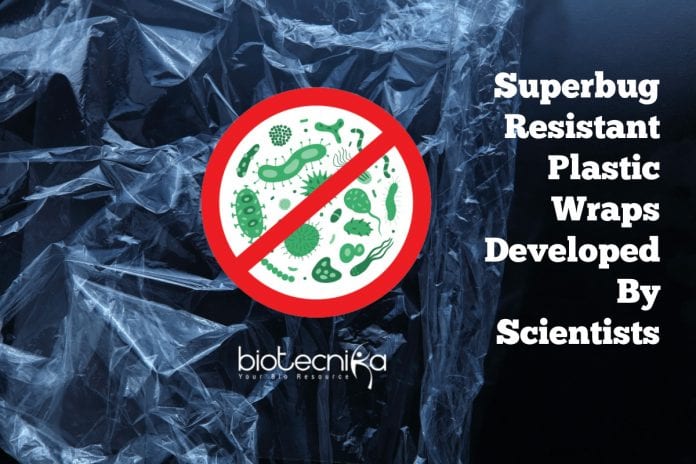Superbug Resistant Plastic Wraps
Researchers from Canada’s McMaster University have developed a self-cleaning plastic wrap that repels superbugs and viruses. The researchers believe that it can even prevent the transfer of antibiotic-resistant superbugs.
The scientists used a combination of nano-scale surface engineering and chemistry to develop a plastic surface. This is a treated form of transparent wrap that repels all kinds of bacteria.
The coating, inspired by water-resistant lotus leaves, is textured with microscopic “wrinkles” that block out external molecules and are chemically treated, meaning that water, blood or bacteria bounce away when they come into contact with the surface.
These Superbug Resistant Plastic Wraps can be shrink wrapped onto surfaces that are considered common breeding grounds for superbugs like the MRSA, such as door handles and railings.
Leyla Soleymani, an engineering physicist at McMaster University, said that the team developed the wrap to address the significant threat that is posed by multi-drug resistant bacteria. She added that given the limited treatment available for superbugs reducing it’s spread from one person to another is the key.
According to the US Centers for Disease Control and Prevention, approximately 2.8 million antibiotic-resistant infections occur in the United States every year, & more than
35,000 people die as a result of these drug-resistant infections.The researchers believe the new material could also be used to package food and could stop the spread of bacteria such as E.coli, salmonella, and listeria from raw meats and foods.
According to the CDC, 20% of all drug-resistant infections come from the food we eat.
Scientists highlighted that the Superbug Resistant Plastic Wraps could be applied to almost any kind of material, including food. Also, the surface is durable, flexible, and inexpensive to manufacture.
They tested the material using MRSA and Pseudomonas- considered the most dangerous forms of antibiotic-resistant bacteria. Thye further used electron micrograph images to confirm that virtually no bacteria could transfer to the surface.
Tohid Didar, who co-led the research, said that the Superbug Resistant Plastic Wraps would have wide applications, including all kinds of institutional and domestic settings.






























